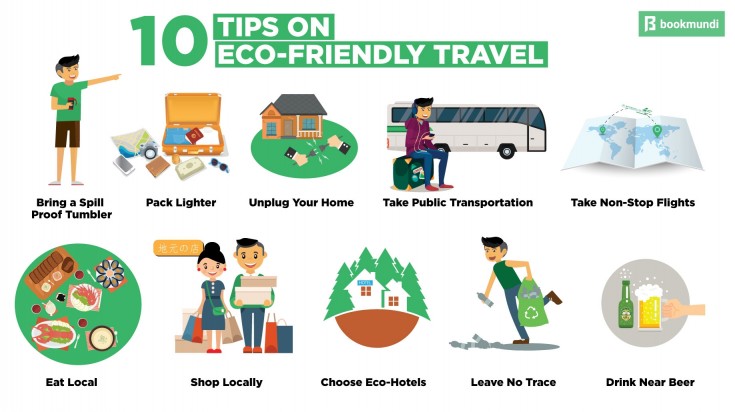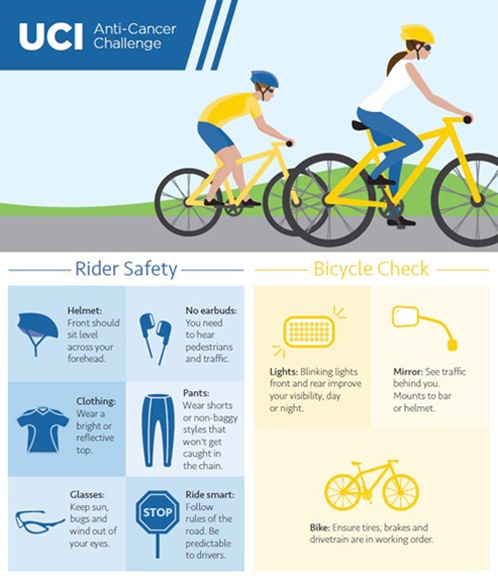Whether you’re out and about, or at home, being eco-friendly is always a good practice. Not only is it better for the environment and your health, it’s often cheaper too! Here are 10 tips for eco-friendly travel.
1. Reduce, Recycle, Reuse
Whether you’re bringing a trash bag to throw away your garbage, or reusing your water bottles, Recycling is probably one of the easiest ways to reduce your carbon footprint. Carrying a trash bag while out and about makes it easy to throw away garbage, or to pick up any that you may find while you’re travelling. Reusing, or buying a reusable water bottle saves millions of plastic bottles or cans from ending up in landfills, or in the ocean.
Learn more here: https://www.greenwonder.com/5-ways-to-save-using-water-in-your-home/
2. Self-Powered Travel
Cars, Airplanes, and buses all seem like convenient forms of transport, but often times its much more rewarding to reach your destination by yourself, through biking, walking, or rollerblading. The less gas you use, not only will your travels be cheaper, you will have a substantially lower impact on the environment. If your destination is impossible to reach by foot or bike, try to carpool as much as possible.
3. Stay on the Trails
It’s amazing how many people wander off the trails. You may not think it’s doing very much damage, but chances are, if you’re going off the trail, at least 100 other people have taken that same path, which causes damage each time, and has the possibility of transferring invasive species of plants into other habitats. Staying on the trails also makes it easier for people to find you, if you happen to get lost, or if you get caught in a dangerous storm, or situation.
4. Re-chargeable batteries, or Solar battery packs
If you use an electronic device that needs to be recharged, or have the batteries replaced frequently, invest in some good rechargeable batteries, or a solar powered battery charger. You will save money from not having to buy a bunch of batteries, but you will also prevent the drained batteries from being discarded improperly.
5. Eat Local
Not only are you helping the community, you’re not paying a chain restaurant, or an industry that uses unsustainable practices to provide you with food. Local, organic, non-GMO, pesticide free food helps local farmers, but it also helps you to know where your food is sourced, and to know that what you’re eating isn’t laced with poisonous chemicals, or overloaded with unhealthy fillers and preservatives.
6. Eco-friendly Toiletries
In my time as an Environmentalist, I saw so many discarded toiletries and non-biodegradable products lying around in my project zones. The fact of the matter is, there is harmful chemicals in just about everything, that isn’t hurting just you, but also the environment. Chemicals in detergents and sunscreens damage plants, and if you go swimming in the ocean, when you’ve applied sunscreen that isn’t reef friendly or biodegradable, you will be adding to the countless other people who have done the same. Every little bit adds up. One eco-friendly purchase by you, is one less hit to the environment.
7. Eco-Friendly Room and Board
Some organic farms offer free room and board in exchange for volunteers. World Wide Opportunities on Organic Farms can match you to them. Not only does it lessen your impact as a tourist, you give back to the people, community, and environment during your stay. If your destination isn’t offered in the WWOOF, you can choose eco-friendly lodging, by doing a little research beforehand to book accommodations that adhere to eco-friendly policies.
8. Take only what you need
Travelling light not only makes it easier on you, but it makes it easier to use public transportation. If you only bring necessities, you may even have enough room left over to purchase locally sourced, or locally made souvenirs, which helps the local economy. Travel sized packages, while seemingly convenient, takes a heavy toll on the environment. It’s cheaper, and easier on the environment to buy bulk, or even home-make products, such as sunscreen, and to put the products into re-useable containers or bottles.
9. Non-stop Flights
Taking off and landing uses more fuel then actually flying to your destination, so by taking non-stop flights you help conserve fuel. It may cost more to fly non-stop, but it takes less time, and because of that you use less fuel. Packing lightly also reduces the amount of weight the plane carries. The more weight it carries, the more fuel it takes to fly. Using a VPN to torrent your books, movies or games can be an easy way to reduce the amount of weight you pack, as well as give you access to region restricted websites.
10. Before you leave
Shutting off lights and unplugging all non-essential electronics and appliances helps reduce your electric bill, as well as helps reduce the amount of impact you have on the environment. Turning down your thermostat, or turning off your A/C while you’re away will help save you money. Turning down the temperature on your water heater is another idea to help reduce your impact, because if there is nobody around to use it, nobody will notice.
Travelling eco-friendly may seem like a hassle, but it’s really not if you can do even one thing with the environment in mind, it helps more than you may realize. Check out Green Wonders Travel Archive for more ideas or suggestions that I may have not listed here.





